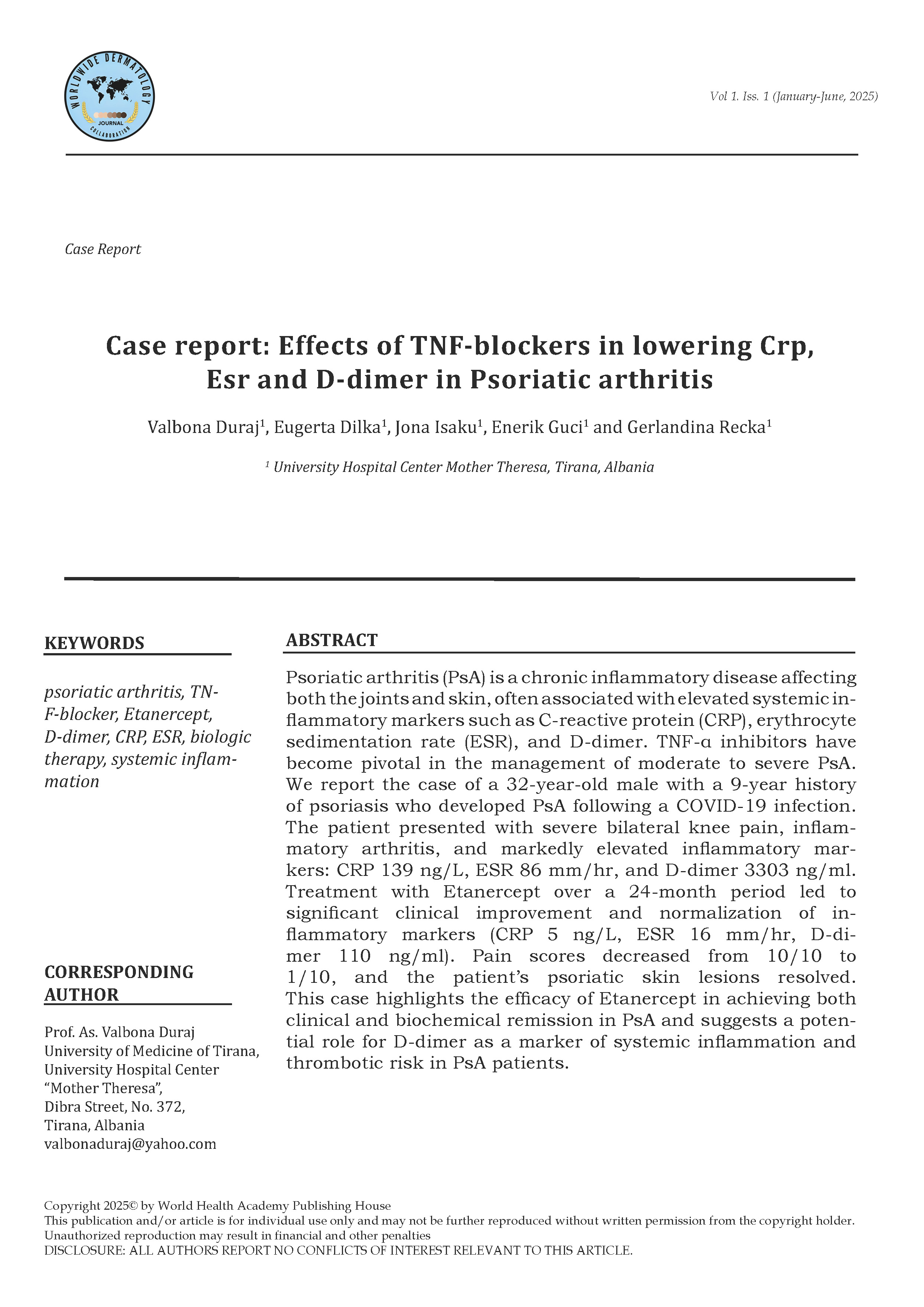Effects of TNF-blockers in lowering Crp, Esr and D-dimer in Psoriatic arthritis
Keywords:
Psoriatic arthritis, TNF-blocker, Etanercept, D-dimer, CRP, ESR, biologic therapy, systemic inflammationAbstract
Psoriatic arthritis (PsA) is a chronic inflammatory disease affecting both the joints and skin, often associated with elevated systemic in-flammatory markers such as C-reactive protein (CRP), erythrocyte sedimentation rate (ESR), and D-dimer. TNF-α inhibitors have become pivotal in the management of moderate to severe PsA. We report the case of a 32-year-old male with a 9-year history of psoriasis who developed PsA following a COVID-19 infection. The patient presented with severe bilateral knee pain, inflam-matory arthritis, and markedly elevated inflammatory mar-kers: CRP 139 ng/L, ESR 86 mm/hr, and D-dimer 3303 ng/ml. Treatment with Etanercept over a 24-month period led to significant clinical improvement and normalization of in-flammatory markers (CRP 5 ng/L, ESR 16 mm/hr, D-di-mer 110 ng/ml). Pain scores decreased from 10/10 to 1/10, and the patient’s psoriatic skin lesions resolved. This case highlights the efficacy of Etanercept in achieving both clinical and biochemical remission in PsA and suggests a poten-tial role for D-dimer as a marker of systemic inflammation and thrombotic risk in PsA patients.
Downloads





